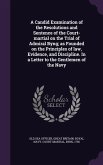Brodsky contends that three factors--constitutional, commercial, and technological--in turn, have caused Britain to raise large citizen forces. Because Britain traditionally has been an unmilitary state which has not maintained large standing armies, this ethos of amateurism merged with the professionalism of the Regular Army. He argues that it is this unique influence of amateurism which historically has been central to the British profession of arms and vital to its spirit of service. A wide range of prose and poetry illustrates that spirit and the military cultural experience in which it evolved in Great Britain from the Restoration through World War II. In an overview of later developments, including the Falklands War, Brodsky enunciates the challenge facing the traditional ethos in the nuclear age. Analyzing the effect of the literary idiom, he questions the future direction of representative literature.






![Cricket Across the Sea, or, The Wanderings and Matches of the Gentlemen of Canada, 1887 [microform] Cricket Across the Sea, or, The Wanderings and Matches of the Gentlemen of Canada, 1887 [microform]](https://bilder.buecher.de/produkte/65/65500/65500704m.jpg)

